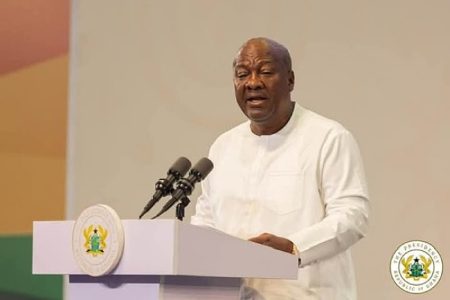The Ghanaian fuel market has witnessed a shift in pricing dynamics as some Oil Marketing Companies (OMCs) have initiated price reductions for petrol and diesel, marking a welcome respite for consumers after a period of consistent price hikes. Total Energies, a major player in the Ghanaian fuel market, has taken the lead in this downward trend, adjusting its prices for both petrol and diesel to GH¢15.99 per litre. This represents a decrease from the GH¢16.15 per litre price point observed during the first pricing window of February. Significantly, Total Energies maintained its price at GH¢16.15 while other OMCs implemented price increases earlier in the month, indicating a deliberate strategy to absorb the initial market fluctuations and subsequently pass on the benefits of easing global oil prices to consumers.
Shell, another prominent OMC in Ghana, has also followed suit, implementing price reductions for both petrol and diesel. Shell’s diesel price has been adjusted from GH¢16.09 to GH¢15.99 per litre, aligning with Total Energies’ revised diesel price. For petrol, Shell has implemented a slightly larger reduction, bringing the price down from GH¢16.23 to GH¢15.89 per litre. This competitive pricing strategy suggests a responsiveness to market forces and a commitment to offering competitive rates to consumers. These price reductions signal the first decline in fuel prices in 2024, following a series of three consecutive price increases since the beginning of January. This reversal in the upward price trajectory provides a much-needed reprieve for consumers who have been grappling with the escalating cost of fuel.
The observed price reductions are primarily attributed to the declining trajectory of crude oil prices in the international market. The global oil market is subject to a complex interplay of factors, including supply and demand dynamics, geopolitical events, and economic forecasts. Recent trends indicate a softening of crude oil prices, which directly impacts the cost of refined petroleum products like petrol and diesel. This easing of international crude oil prices has created a window of opportunity for OMCs in Ghana to adjust their local pricing strategies and reflect the global market conditions.
Beyond the influence of international crude oil prices, several other market dynamics contribute to the fluctuations in local fuel pricing. The Ghanaian Cedi’s performance against major international currencies, particularly the US dollar, plays a crucial role in determining the landed cost of imported fuel. A stronger Cedi translates to lower import costs, potentially creating room for price reductions. Conversely, a weaker Cedi can exert upward pressure on fuel prices. Additionally, government policies related to taxes, levies, and subsidies on petroleum products can significantly impact the final price paid by consumers at the pump.
The dynamics of the fuel market in Ghana are further influenced by competition among OMCs. The presence of multiple players in the market creates a competitive landscape where companies adjust their pricing strategies to maintain market share and attract customers. This competition can contribute to price fluctuations, as companies respond to each other’s pricing decisions and strive to offer competitive rates. Furthermore, operational costs, including transportation, storage, and distribution expenses, also factor into the final price of fuel.
The recent price reductions implemented by OMCs like Total Energies and Shell are indicative of a positive shift in the fuel market, offering some relief to consumers. However, the fuel market remains susceptible to both global and local influences, and price volatility is likely to persist. Monitoring international crude oil prices, currency exchange rates, government policies, and competitive dynamics within the OMC landscape will be crucial for understanding and anticipating future price trends. Consumers can benefit from staying informed about these factors to make informed decisions regarding fuel consumption and budgeting. The regulatory environment also plays a significant role in ensuring fair pricing and competition within the fuel market, protecting the interests of both consumers and businesses.














